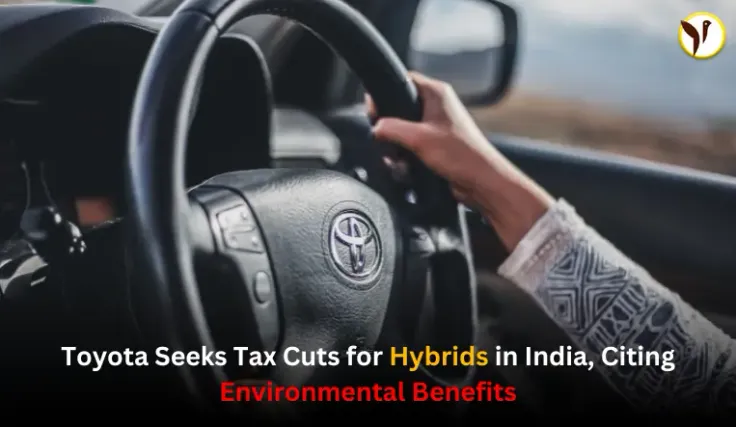Toyota, the world's largest carmaker, is urging the Indian government to reduce taxes on hybrid vehicles by up to 21%, asserting that they are significantly less polluting than traditional petrol cars but are not receiving proportional policy support, according to a company letter.
Despite the government's emphasis on promoting electric vehicles (EVs) and offering substantial incentives for EV and battery production, Toyota is seeking tax reductions to bolster its hybrid vehicle production to meet the growing demand in India.
At present, hybrid vehicles face a tax rate of 37%, with flex-hybrids being taxed at 34%, resulting in potential cuts of 14% and 21%, respectively, as per calculations by Reuters.
In a letter dated September 20, which has not been previously disclosed, Toyota's Managing Director, Vikram Gulati, requested "proportionate policy support" from the government. Toyota, renowned for pioneering hybrid technology with the Prius, has faced scrutiny from both investors and environmental organizations for continuing to back hybrids. The company maintains that hybrids are more practical in markets where electric vehicle infrastructure is underdeveloped.
While Indian automotive giants like Tata Motors and Mahindra & Mahindra are endorsing EVs, Toyota and Honda are advocating for support for hybrids. Toyota, in response to the letter, declined to comment but emphasized that the most effective way to reduce carbon emissions is through a combination of electrified and alternative energy solutions, which include both EVs and hybrids.
Despite venturing into EV development, Toyota continues to champion hydrogen-powered vehicles, arguing that a "multi-pathway" approach is necessary to address the climate crisis. Toyota asserts that India's tax structure and the use of relatively expensive powertrain components, including engines, batteries, and motors, render hybrid production approximately 30% to 35% more costly than traditional petrol vehicles. The letter from Toyota also implores the Indian government to include hybrid cars in its incentive program, which currently provides discounts solely to EV buyers. Niti Aayog, the Indian government's policy think tank, has not yet issued a response to these requests.
Also read: Foxconn Stock Declines Following Reports of Chinese Tax Audit and Land Use Investigation







